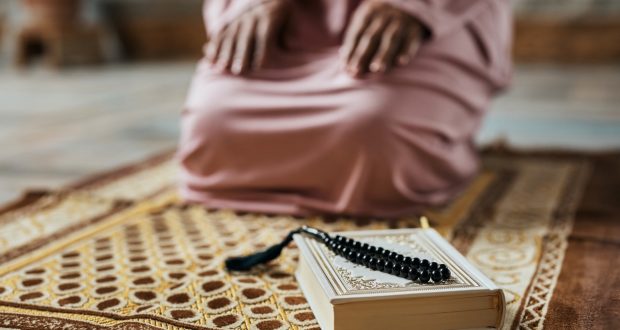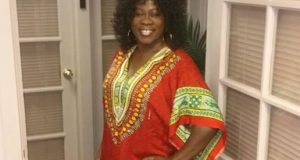By Charlene Muhammad | California Black Media
On the night of March 10, 2024, Ramadan began for some two billion believers across the Muslim world. The Islamic Holy Month is a time of spiritual renewal for all participants, including many who do not identify as Muslim. Each year, an increasing number of individuals beyond the Muslim world embark on the journey of fasting during this sacred time.
In California, where an estimated half a million Muslims live, accounting for about 1.3% of the state’s population, the faithful are gathering daily for prayers at the 246 mosques located across the Golden State.
This month of Ramadan benefits every human being, regardless of their belief, said Student Minister Ishmael Muhammad of the Nation of Islam during his March 24 address livestreamed from Mosque Maryam in Chicago.
“Did you know that fasting and prayer can help us hear God more clearly? Did you know that the principle and practice of prayer and fasting can help us make better choices,” Muhammad added.
On Tuesday, April 9, the holy month of fasting will come to an end.
Prayer, fasting and reflecting on Allah (God) gives one the power of discernment, he said. In addition, they strengthen faith and build self-discipline, which brings one closer to their Creator, he detailed. The name Ramadan, said Muhammad, comes from the ninth month of the Lunar calendar and it means “intense heat.”
According to Islamic history, this is the month in which the Holy Qur’an was revealed to Prophet Muhammad (Peace and Blessings of Allah Be Upon Him) by the angel Jibril, and every year, during Ramadan, each day, 1/30th of the Holy Book is recited or read by those observing the fast.
Ramadan spans 30 days of fasting, study, recommitment, and heightened awareness of Allah (God). In Arabic, this is known as Taqwa, the state of being conscious and cognizant of God. But what is Ramadan, how does one observe Ramadan, and lastly, how did it come to be observed by over 25% of the world’s population?
“O you who believe, fasting is prescribed for you, as it was prescribed for those before you, so that you may guard against evil,” it reads in Chapter 2, verse 183. “So, whoever of you is present in the month, he shall fast therein,” continues the Holy Qur’an.
“This is a beautiful month. Thanking Allah for His many blessings, His mercy, His protection, His favor, and we should praise Allah every day,” Muhammad stated.
Acts of fasting were performed by Moses and his community, Jesus and his followers, prophets such as David, Elijah and many other figures in the Torah and the Gospel.
There is, however, a unique all-encompassing quality to fasting in Islam, especially during the time of Ramadan. During Ramadan, Muslims restrain themselves from consuming food and water during the daylight hours. In addition, they are required to abstain from fighting, foul language, and sexual relations with their spouses during the daylight hours. For nearly 12-16 hours a day, from sunrise to sunset, Muslims are engaged in an exercise to gain greater self-control, adding strength to their righteous character. Ramadan is observed not only through the abstaining of food and water, but through the daily readings of the Holy Qur’an, keeping up prayer, increased acts of kindness and charity especially in the way of feeding the poor.
Amina Lei, a Chinese American artist, and educator who has held forums to bring the Black, Brown, Red and Asian communities into a space to foster understanding and dialogue in Los Angeles, has been a Muslim since 2019. “It’s really a time for spiritual cultivation, a really great practice to rise above our physical desires, for hunger, vanity as well, to really get into the word of God, to have some quiet time for yourself, and study,” she told California Black Media.
In addition, during Ramadan, she has found great benefit in cultivating communities, she said. “This practice of rising above our physical limitations brings us to a higher level, a greater cause and to do that with your brothers and sisters in this time is really meaningful,” she added.
California Black Media also spoke to Grammy-nominated producer Kenneth “Trax” Coby, who said, “The first time I did it (Ramadan), I realized I was doing it wrong,” acknowledging that he wasn’t observing the strictest elements of the fast. “It was good, it builds a sort of discipline. I was new to it. You’re consistently working at something then after the 30 days, it’s a huge payout.”
“I’ve been observing the fast of Ramadan since I was 15-years-old, I’m 28 now,” said Na’il Ali Muhammad. “It took me a few years to see it through and complete the entire 30 days. There’s great satisfaction when you complete it, much like when you climb a mountain and finally reach the top. For me, every fast allows me to reset my mind, body and cater to my soul. Ramadan offers a great chance to connect with God and get a grip on my negative habits and expel ideas that no longer serve me.”
Thus far, Muslims in various Nation of Islam mosques and study groups around the country have been preparing and distributing over 10,000 meals to communities as acts of service since the first week of Ramadan, according to Muhammad. Girls Training and General Civilization Class) have been working together to ensure delicious, homemade food reaches those in need.
While Ramadan is a special time for individual improvement, the Holy Month also serves as a time for the strengthening of family and community bonds. In the evenings, as the fast concludes, families and friends gather for what is called Iftar –feasts that occur regularly throughout the month and mass assemblies of Muslims gathered for prayer.
For those curious about the benefits of Ramadan, consider tuning in to “Ramadan: The Ummah Reflects,” a livestream that airs every morning and offers replays of each episode.
This resource is supported in whole or in part by funding provided by the State of California, administered by the California State Library in partnership with the California Department of Social Services and the California Commission on Asian and Pacific Islander American Affairs as part of the Stop the Hate program. To report a hate incident or hate crime and get support, go to CA vs Hate.
 Westside Story Newspaper – Online The News of The Empire – Sharing the Quest for Excellence
Westside Story Newspaper – Online The News of The Empire – Sharing the Quest for Excellence





